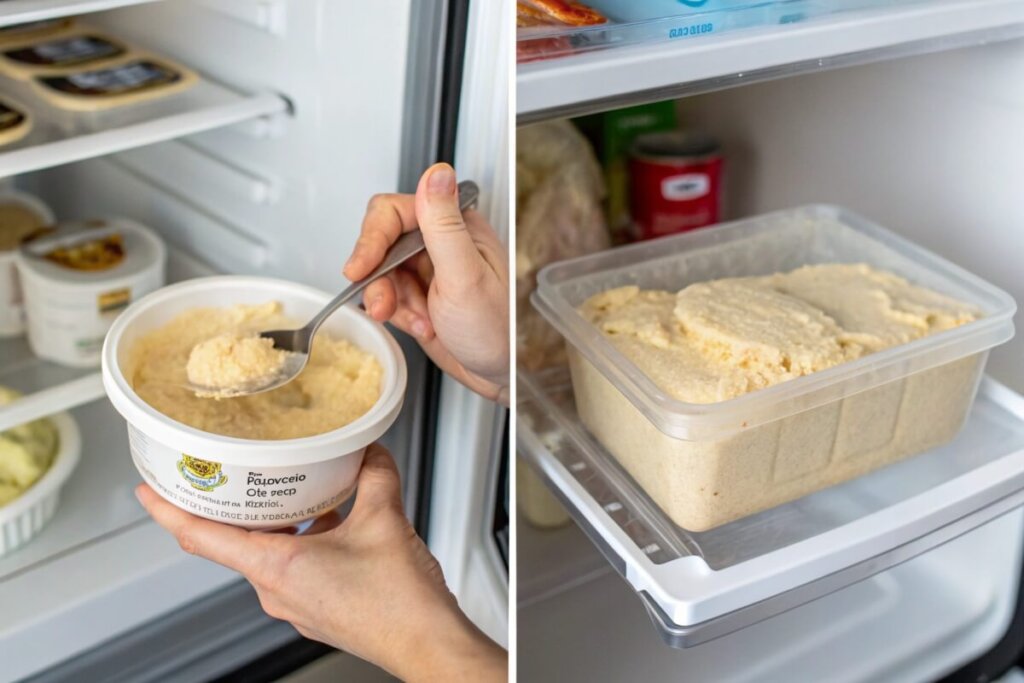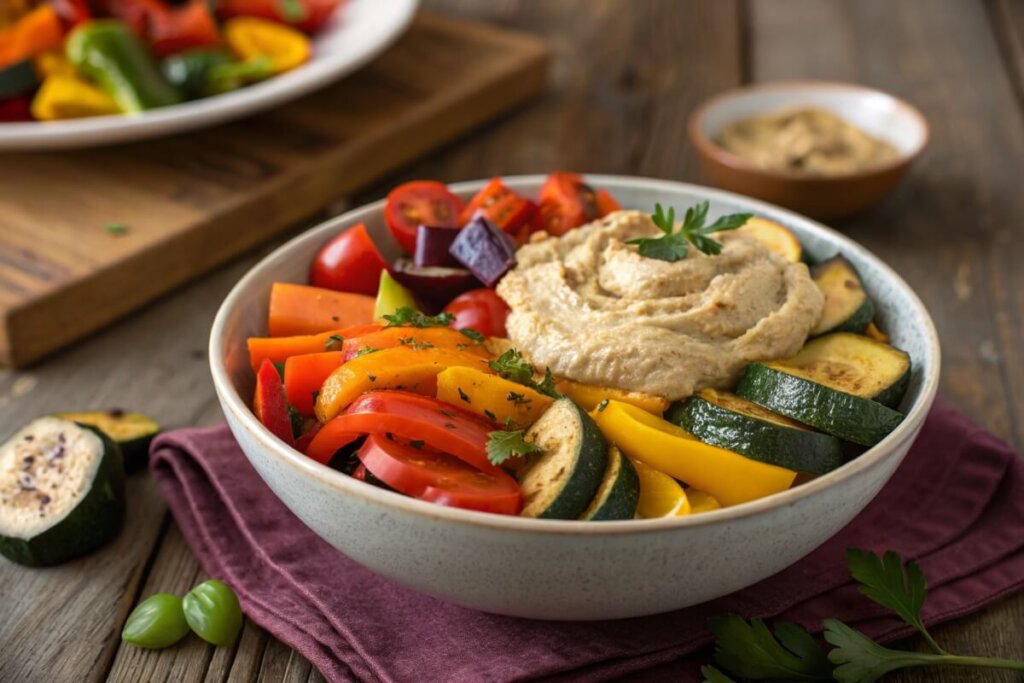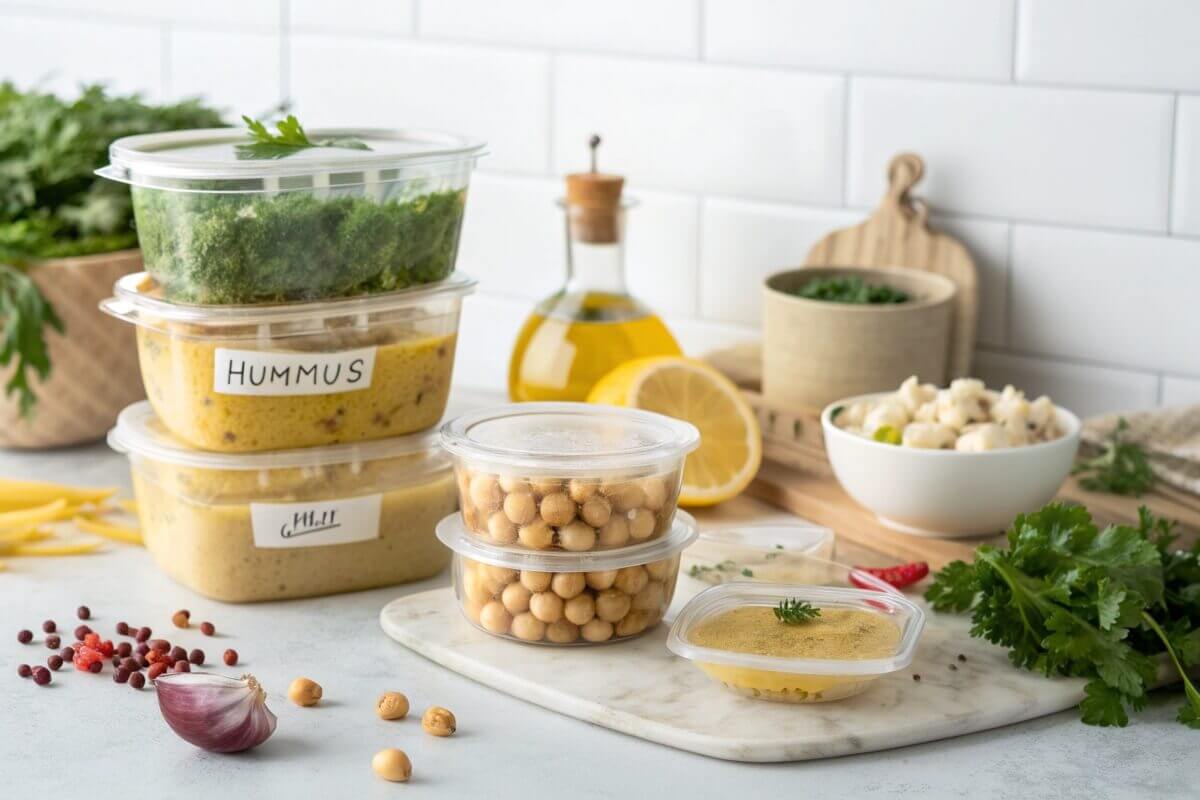Freezing hummus might not be the first thing that comes to mind when considering how to store this creamy, versatile dip, but it can be a real game-changer. Whether you’ve whipped up a big batch of homemade hummus or bought a little too much from the store, freezing is a simple solution to prolong its shelf life. This guide will walk you through everything you need to know—from why freezing hummus makes sense to the best ways to store, thaw, and enjoy it again. Let’s dig in!
Why Freeze Hummus?
Benefits of Freezing Hummus
Freezing hummus has several perks, especially if you’re looking to save time or reduce food waste. By freezing, you can preserve the creamy goodness for future use, ensuring you always have a healthy snack or spread on hand. It’s perfect for busy schedules—you can freeze in small portions and defrost only what you need.
Hummus is packed with nutrients like protein, fiber, and healthy fats, so freezing ensures you don’t lose these benefits when storing it for the long haul. Moreover, it helps you stretch your grocery budget by extending the shelf life of store-bought or homemade hummus.
Situations When Freezing Hummus Is Ideal
Freezing is particularly handy in these scenarios:
- Batch Cooking: Made too much hummus for a gathering? Freeze the leftovers!
- Stocking Up: Found a sale on your favorite flavored hummus? Buy in bulk and freeze extras.
- Meal Prepping: Planning meals ahead? Portion hummus into smaller containers for easy lunch packing.
The Science Behind Freezing Hummus
How Freezing Affects Texture and Flavor
Freezing hummus works well, but it does come with minor compromises. The primary change you’ll notice is in its texture. Since hummus contains water, freezing can cause some separation between the water and oils, leading to a slightly grainy consistency upon thawing. To counteract this, simply stir the thawed hummus thoroughly to restore its creamy texture.
Flavor-wise, plain hummus tends to fare better than varieties with added ingredients like roasted peppers or herbs, which might lose some vibrancy. Understanding these changes helps manage expectations, ensuring your frozen hummus remains a reliable go-to for snacks or recipes.
Differences Between Store-Bought and Homemade Hummus During Freezing
Store-bought hummus generally freezes better than homemade versions, thanks to preservatives and stabilizers. These additives help maintain consistency and flavor after freezing. However, if you’re making hummus at home, consider slightly increasing the olive oil to retain smoothness when defrosted.
It’s also worth noting that some commercial brands suggest avoiding freezing due to potential texture changes. Still, with proper preparation and storage techniques, both homemade and store-bought hummus can freeze effectively.
Check out meal prepping recipes for busy days to pair frozen hummus with ready-to-go meals.
Step-by-Step Guide to Freezing Hummus
Preparing Hummus for Freezing
Preparation is key to successfully freezing hummus. Start by transferring it into an airtight, freezer-safe container. Leave about an inch of space at the top since hummus expands when frozen. To preserve flavor, drizzle a thin layer of olive oil on top before sealing.
If you have a large batch, consider portioning it into smaller containers or even an ice cube tray. Smaller portions make thawing easier and reduce waste.
Best Storage Containers for Frozen Hummus
Choosing the right container can make or break your freezing success. Opt for containers with a tight seal to prevent freezer burn. Plastic containers or silicone bags work best. Avoid glass jars, as they might crack when frozen.
Additionally, labeling containers with the date ensures you consume hummus within its optimal freezer shelf life of 3-4 months. Always prioritize freshness!
Freezing in Portions for Convenience
Portioning hummus before freezing offers a practical way to store it. This method is ideal for those who frequently use hummus as a dip or in recipes. For example, portioning into half-cup servings means you can thaw only what you need, saving time and reducing waste.
How to Thaw and Use Frozen Hummus
Proper Thawing Techniques

Thawing hummus properly ensures it retains its creamy texture and rich flavor. The safest way is to transfer the container from the freezer to the fridge and let it thaw slowly overnight. This gradual process helps prevent texture breakdown.
For a quicker option, place the sealed container in a bowl of cold water for a few hours. Avoid using the microwave to thaw hummus, as it can overheat and ruin the texture. Once thawed, give it a good stir to mix any separated water and oils.
Tips to Restore Texture and Flavor After Thawing
Sometimes, frozen hummus might feel a little grainy or dull in taste after thawing. To restore its creaminess, drizzle in a bit of olive oil and mix vigorously. A splash of lemon juice or a sprinkle of salt can revive the flavor.
If the hummus feels too thick, add a teaspoon of water or tahini and mix until smooth. This method works well for both plain hummus and flavored varieties.
Creative Ways to Use Thawed Hummus
Thawed hummus doesn’t just serve as a dip—it can be a versatile ingredient in your cooking. Spread it on sandwiches or wraps for a flavorful base, or mix it into salad dressings for a creamy texture. For a warm twist, use thawed hummus as a topping for baked vegetables or a base for grain bowls.
Pro Tip: For more creative meal ideas, consider exploring healthy dinner recipes that pair perfectly with hummus.
FAQs About Freezing Hummus
Can You Freeze Hummus With Toppings?
Yes, you can freeze hummus with toppings, but it’s best to do so separately. Toppings like roasted peppers or pine nuts can become soggy or lose their texture during freezing. For the best results, freeze plain hummus and add toppings fresh after thawing.
How Long Does Hummus Last in the Freezer?
Hummus can be frozen for up to four months without significant quality loss. Beyond this, the texture and flavor may degrade. Always label your containers with the date to ensure you enjoy the hummus within its optimal storage time.
What Are Common Mistakes to Avoid?
One common mistake is overfilling the container. Remember to leave room for the hummus to expand as it freezes. Another is freezing hummus that’s already past its prime—freezing won’t improve spoiled hummus. Lastly, avoid repeated thawing and refreezing, as it can lead to a mushy texture.
For additional cooking tips or recipes featuring hummus, check out other articles on Top Fitness Meals.
Alternatives to Freezing Hummus
Refrigeration vs. Freezing
If you’re wondering whether to refrigerate or freeze hummus, it depends on how soon you plan to use it. Refrigeration is best for short-term storage—about 4-7 days for homemade hummus and up to 10 days for store-bought varieties. However, if you’ve made a large batch or don’t anticipate finishing it quickly, freezing is the way to go.
Refrigeration preserves the natural texture of hummus better than freezing, but it doesn’t extend its shelf life nearly as long. Always seal your hummus in an airtight container to maintain freshness in the fridge.
Other Preservation Methods for Hummus
For those looking to avoid freezing, there are alternative ways to preserve hummus. One option is vacuum-sealing, which can extend the life of refrigerated hummus without the texture changes caused by freezing. Another method is to dehydrate hummus into a powder, which can later be rehydrated for use.
Adding a thin layer of olive oil on top before sealing can also prevent air exposure and slow spoilage. While these methods don’t replace freezing, they offer viable options when you need hummus to stay fresh without the freezer.
Tip: Curious about how to incorporate fresh hummus into your meals? Visit this recipe guide for inspiration.
FAQs About Freezing Hummus
Does Freezing Hummus Impact Its Nutritional Value?
Freezing hummus doesn’t significantly affect its nutritional value. Key nutrients like protein, fiber, and healthy fats remain intact. However, the texture may slightly change, especially if the hummus is frozen for an extended period.
Can Flavored Hummus Be Frozen?
Yes, flavored hummus can be frozen, but certain ingredients like garlic or herbs may become less vibrant after thawing. To maintain flavor, consider adding fresh seasonings or toppings after defrosting the hummus.
Is It Safe to Freeze Hummus Multiple Times?
It’s not recommended to refreeze hummus once it has been thawed. Each thawing and refreezing cycle can degrade the quality and introduce potential food safety risks. Instead, freeze hummus in small, portion-sized containers to avoid the need for refreezing.
This comprehensive guide has covered everything you need to know about the question: Can you freeze hummus? From preparation to creative uses and alternative storage methods, you’re now equipped to make the most of your hummus stash. For more culinary tips and ideas, explore Top Fitness Meals. Happy dipping!
Creative Recipes Using Frozen Hummus

Incorporating Thawed Hummus into Meals
Once thawed, hummus becomes a versatile ingredient that can elevate everyday dishes. Spread it on sandwiches or wraps as a flavorful alternative to mayonnaise. Its creamy texture works wonders in grain bowls, adding richness and a hint of nutty flavor.
Thawed hummus also pairs well with roasted vegetables. Simply drizzle it over baked carrots, zucchini, or bell peppers for a quick and satisfying side dish. If you’re feeling adventurous, use it as a base for homemade pizza instead of traditional tomato sauce.
Cooking with Hummus: Beyond Dips
Did you know hummus can be used in warm dishes too? Stir thawed hummus into soups for a creamy texture or use it as a sauce for pasta or rice. Its protein-packed composition makes it an excellent addition to vegetarian meals.
For a healthy snack, try mixing hummus into deviled eggs or as a stuffing for baked potatoes. These creative ideas show that the answer to can you freeze hummus goes far beyond simple storage—it unlocks new ways to enjoy it in your meals.
For More Inspiration: Explore high-protein meal recipes for pairing ideas with hummus-based dishes.
Final Thoughts on Freezing Hummus
Is Freezing Hummus Worth It?
If you’ve ever wondered, can you freeze hummus, the answer is a resounding yes! Freezing hummus is a practical way to save time and reduce waste while keeping this versatile dip ready for any occasion. Although its texture might change slightly, the flavor and nutritional benefits remain intact with proper preparation.
Your Next Steps
To get the most out of frozen hummus, follow the tips shared in this guide. Always use airtight containers, thaw it correctly, and get creative with recipes. Whether you’re spreading it on sandwiches, mixing it into soups, or enjoying it as a dip, frozen hummus can add convenience and flavor to your meals.
Ready to dive into your hummus journey? For more healthy cooking ideas, visit Top Fitness Meals. With these tips, your hummus will always be as fresh and flavorful as the day you made it.

